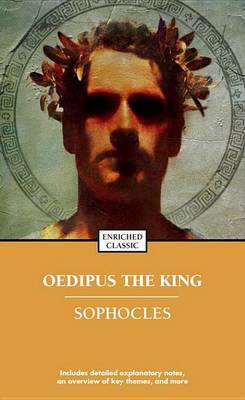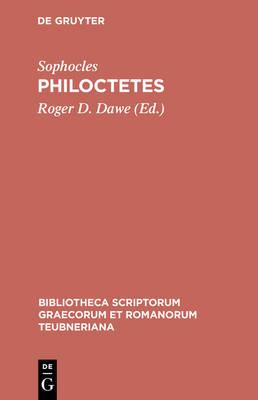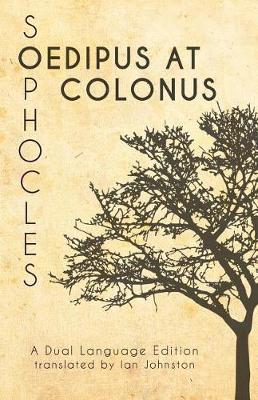Greek Tragedy in New Translations
7 total works
A great masterpiece on which Aristotle based his aesthetic theory of drama in the Poetics and from which Freud derived the Oedipus complex, King Oedipus puts out a sentence on the unknown murderer of his father Laius. By a gradual unfolding of incidents, Oedipus learns that he was the assassin and that Jocasta, his wife, is also his mother.
This Enriched Classic Edition includes:
-A concise introduction that gives readers important background information
-Timelines of significant events in Greek history and theater that provide the book’s historical context
-An outline of key themes and plot points to help readers form their own interpretations
-Detailed explanatory notes
-Critical analysis and modern perspectives on the work
-Discussion questions to promote lively classroom and book group interaction
-A list of recommended related books and films to broaden the reader’s experience
Enriched Classics offers readers affordable editions of great works of literature enhanced by helpful notes and insightful commentary. The scholarship provided in Enriched Classics enables readers to appreciate, understand, and enjoy the world's finest books to their full potential.
Series edited by Cynthia Brantley Johnson
A muscular version of Sophocles' timeless masterpiece, offering a profound reflection on the nature of power, democracy and human rights.
The war has ended, but with peace comes conflict. Antigone's brother Polyneices lies on the battlefield where he fell, his burial outlawed by Creon, the new king of Thebes. Should Antigone obey Creon, or must she follow her conscience and lay her beloved brother to rest?
full stage directions, and a glossary of the mythical and geographical references in the play.
En route to fight the Trojan War, the Greek army has abandoned Philoctetes, after the smell of his festering wound made it unbearable to keep him on ship. Ten years later, an oracle makes it clear that the war cannot be won without the assistance of Philoctetes and his famous bow, inherited from Hercules himself. Philoctetes focuses on the attempt of the heroes Odysseus and Neoptolemus to persuade the bowman to sail with them to Troy. First, though, they must assuage his bitterness
over having been abandoned, then win his trust. But how should they do this-through trickery, or with the truth? To what extent do the ends justify the means? To what degree should private interest be compromised for the sake of public duty? These are among the questions that Sophocles puts forward in this, one
of his most morally complex and penetrating plays.
Two decades later a twist of fate brings Brother and Sister together; united by hate but divided by faith. With the country on the brink of civil war, the most powerful family in the Kingdom are torn apart from the inside as their dark past once again becomes the present.
The revolution will be televised, but are The Gods watching?
DumbWise reinvent the murderous Greek myth of power and prophecy as a lyrical modern epic with a live punk-rock score.
daughters, to the man who rises from his seat and, without help, leads everyone to the place where he is destined to die. In the background of this transformation stands the grove of the Furies, the sacred place of the implacable goddesses who pursue the violators of blood relationships. Although Oedipus, who
killed his father and married his mother, is an obvious target of the Furies' vengeance, he enters their grove at the beginning of the play, sure that it is the resting place Apollo has predicted for him. The reversals and paradoxes in the play speak to the struggle that Oedipus' life and the action of the play bring vividly before us: how do we as humans, subject to constant change, find stable ground on which to stand and define our moral lives? Sophocles offers his play as a witness to the
remarkable human capacity to persevere in this struggle.





